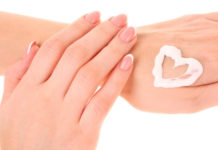We all have that one pet-peeve- or those dozen pet-peeves- that can turn our attempt at a kind greeting into one singed in sourness. As a triage nurse, we are aware that we are the first point of clinical contact for all those entering the ER. We know this and we try to make that smile hit our eyes.
But more often than not, 10 hours into a graveyard shift that has had you taking vitals for an entire family of 10 that came in with one runny nose, coaxing a frantic teen from having tweet-anxiety from her recent unliked posts to dragging a half-conscious intoxicated man from his ‘bed’ in the hallway gurney to re-check him in…it can get real quite fast.

The fact is that if you are more than a few years into this gig, you may not even bat an eye at that elderly man who came in complaining of period cramps and asking for Midol injections. The outrageous chaos reaches a plateau that just somehow levels out and your once apprehensive approach to hearing why they are at the ER dissolves into robotic-like responses and barely noticeable head nods.
Long gone is the sympathy and innate desire you once have to save all of humanity and tuck them in with loving words. You have a 12-hour shift and you are two hours away from clocking out.
This year though, perhaps it’s time to fire up those old ‘save the world’ mantras that got you into this job in the first place. Maybe it’s high time to put a little more faith in humanity, so to say.
But how?
Its 90% Mental
Mental strength, according to Forbes magazine, is the ability to regulate your emotions, thoughts, and behavior in a positive manner, despite your circumstances.
“Developing mental strength is about finding the courage to live according to your values and being bold enough to create your own definition of success,” suggests psychotherapist Amy Morin, featured in Forbes article “5 Powerful Exercises to Increase Your Mental Strength.”
Morin states that redefining your focus and replacing any negative thoughts with positive attributes can go a long way in creating a positive experience.
So, when you see that one mother approaching you with six kids in tow and you are short staffed for the night, mentally prepare for it. She comes in once a week to have everyone checked at 7 p.m., usually, all the kids are completely healthy. Nevertheless, she is there and wants everyone’s blood pressure, weight, and temperature.
It’s happening no matter what you want to do about it. Let’s use this time with her to develop a relationship of trust. Educate her on the dangers of germs in the ER during flu season. You should also be clear about the importance of only exposing her children to clinical settings if they really need medical care.
Smile

Studies show that our smile not only communicates our current mood but influences it as well. The Huffington Post covered an article on the reasons we should be smiling daily. It suggested that “emotions may originate in the brain, but the muscles in the face either reinforce or transform those feelings.”
The article noted that the more you smile, the more you are combatting stress. Even fake smiles do the trick!
A recent Penn State study also found that smiling makes you more approachable. Remember, as a triage nurse you are most likely the first person a patient lays eyes on.
A little kid, terrified of stitches, just walked in with his eyebrow cut open from a bad fall. Is your face offering any type of confidence and compassion for this little guy? Or are you too focused on counting down the hours that you have reverted to robot don’t-blink-or-speak-anymore-than-necessary face?
Revamp on Break
You have a 30-minute break coming up, what are you going to do with it?
That new app you just put on your phone just alerted you that you spend an average of 6 hours staring at your phone screen a day. Are you really good with that? Is that energizing to you?
Perhaps, it is. However, if you are really trying to reevaluate your whole work perspective into one that is happy and uplifting, you will definitely have to protect those 30 minutes of break time. You need to make sure that whatever you do, you are coming back recharged and ready to give.
Most studies go-to answer for a recharge encourage some form of a heart rate increase, a.k.a. a workout. Yes, you have just gotten halfway through a shift that has had you log the recommended 10,000 steps on your Fitbit by 10 a.m.
However, these steps were frantic and repetitive, back and forth with the blood pressure monitor, to and from the waiting room calling back patients, all commencing with you back in a stuffy office with poor lighting.

A 20-minute stroll around the block won’t kill you. And more often than not, the exposure to a little sunlight and getting out of the building can render you with a new adrenaline kick that you can use to make it through those last few hours.
An article by the Cleveland Clinic goes even so far as to encourage keeping dumbbells at your desk. That way, you can rep weights during long phone calls or attempt lunges down the hallway during bathroom breaks.
Bottom line
Go at your own speed. Create a break time that lifts you back up and focused for those next few hours. Because as you clock back in, you may just have to work overtime to help remove 8 ingrown toenails from a 93-year-old woman. How you spent your last 30-minutes will make or break your stamina to stay positive!
Take a few of these tips to heart. Start this year with a new purpose in caring for other people with all their various ailments. Stay positive, stay focused, and smile- till even you believe it!
Author Bio:
Kelsey Stuart is a college professor and has been a freelance writer for 15 years with hundreds of articles published in books, newspapers, journals, and various academic sites. She is a staff writer for cnaonlinecourse.com, a website specializing in certified nurse aid education and training



















